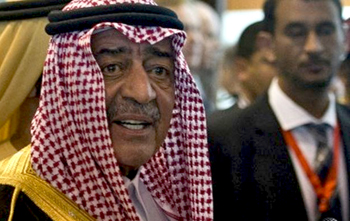Riyadh, Apr 29: Saudi King Salman on Wednesday appointed interior minister Mohammed bin Nayef as his new heir, replacing the monarch's half brother prince Muqrin, and made his son, defence minister Mohammed bin Salman, second in line to succeed.
 He also replaced veteran foreign minister Prince Saud al-Faisal, who had served in the role since March 1975, with the kingdom's Washington ambassador Adel al-Jubeir, the first non-royal to hold the post.
He also replaced veteran foreign minister Prince Saud al-Faisal, who had served in the role since March 1975, with the kingdom's Washington ambassador Adel al-Jubeir, the first non-royal to hold the post.
The changes signalled a major shift at the top of the ruling Al Saud family away from princes chosen by the late King Abdullah, who died in January, and towards those close to the new monarch.
In a decree published by state media, King Salman said the decision to replace Muqrin with Mohammed bin Nayef and to make his own son deputy crown prince had been approved by a majority of the family's Allegiance Council.
Mohammed bin Salman, who has been the most prominent face of Saudi Arabia's military campaign in Yemen, was replaced as head of the royal court by Ahmed al-Sweilam, the decree said.
The decree also appointed Saudi Aramco chief executive Khalid al-Falih as health minister and chairman of Aramco and made labour minister Adel al-Fakeih economy and planning minister, replacing him with Mufrej al-Haqbani.
Internal reshuffles in Saudi Arabia often move oil prices as stability in the world's biggest petroleum exporting country is key to global supplies.
Of particular interest to oil markets was Falih's appointment. His new post of chairman is a position so far held by veteran oil minister Ali al-Naimi, who remained in his post.
Traders said they were closely observing who would become Aramco's new CEO and whether oil minister Naimi's position would be impacted.
Naimi, who is 79 years old and has been oil minister since 1995, has seen several oil price crashes in his tenure, is seen as crucial in Saudi Arabia's decision last November to not cut production in support of prices, which have halved since June 2014.





Comments
Add new comment